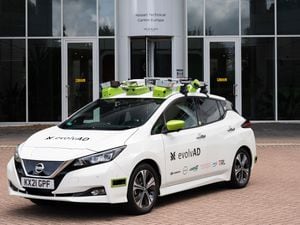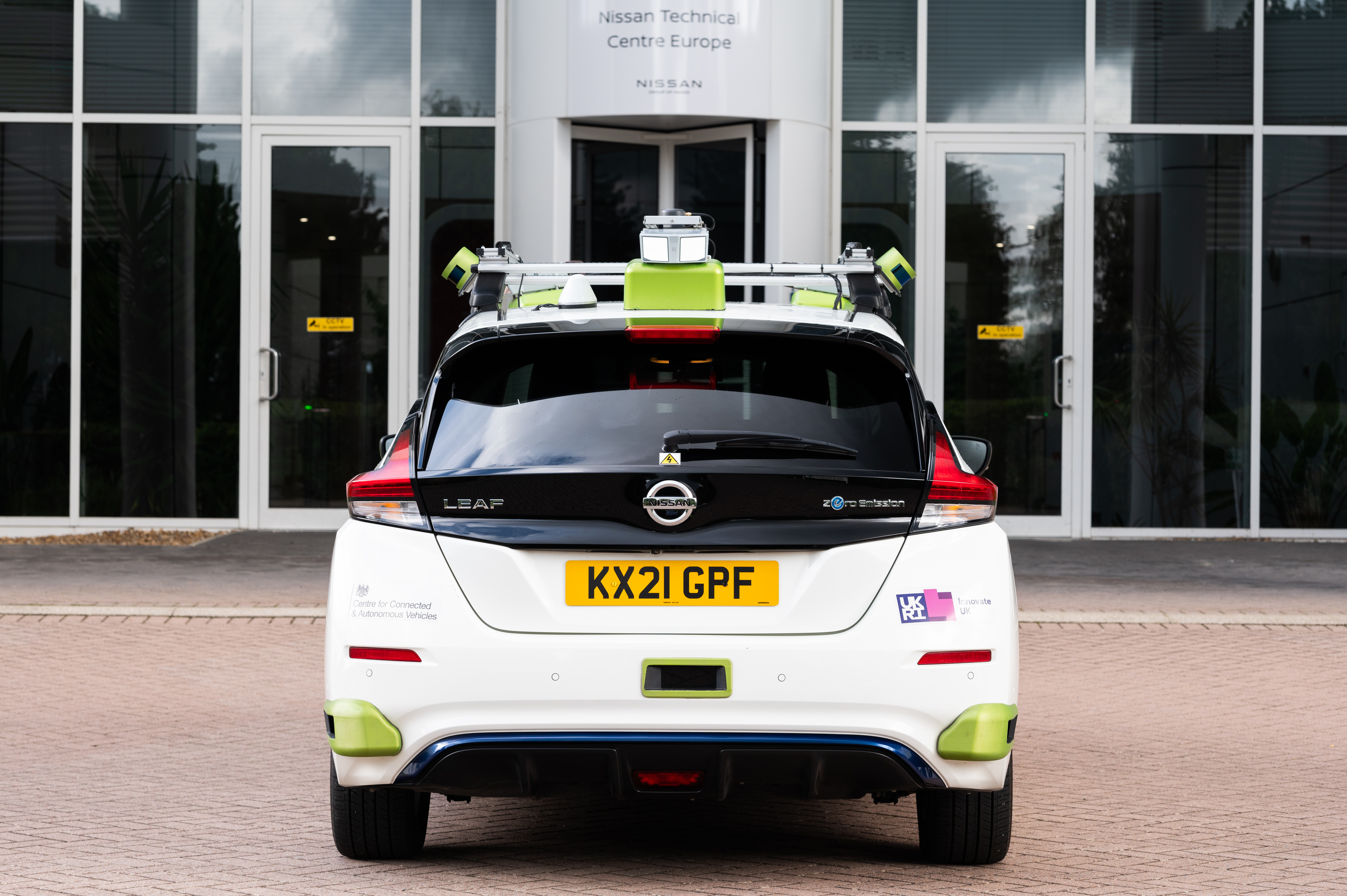Nissan autonomous car project to test technology on rural and residential roads
Connected and Autonomous Vehicles (CAV) will be used in ‘urban residential and complex rural roads’.

Nissan has launched a new research project which will see how autonomous vehicles deal with residential and rural roads.
The new evolvAD project – which is backed both by the Japanese carmaker and the UK government – will put Connected and Autonomous Vehicles (CAZ) through a variety of challenging road tests, in areas such as busy residential roads and tighter, twisting rural sections.
For instance, autonomous cars might have to navigate sections of roads without markings, or in areas with single-lane traffic and vehicles parked on either side.

Nissan – alongside partners the Connected Places Catapult, Humanising Autonomy, SBD Automotive and TRL – will conduct the research project which is jointly funded by the government through the £100m Intelligent Mobility fund. This is administered by the Centre for Connected and Autonomous Vehicles the UK’s innovation agency Innovate UK.
The 21-month project will see autonomous cars use CCTV in residential areas to improve their awareness of the surroundings while also testing how vehicle-to-infrastructure technology could make autonomous vehicles better in the future.
Each autonomous vehicle is based upon the electric Nissan Leaf, with the vehicles already being tested on private test tracks before they head out on the public road.
David Moss, senior vice president, region research & development for Nissan AMIEO (Africa, Middle East, India, Europe, and Oceania) said: “We are extremely proud to be a part of the evolvAD project in the UK, working alongside some brilliant partners to test and trial our technology further.
“Through Nissan Ambition 2030 we want to empower mobility for everyone, and autonomous drive technologies are critical to this effort as they offer huge benefits in terms of vehicle safety, environmental impact and accessibility. As we celebrate 35 years of NTCE in the UK, we’re excited to get going with this next project that will help ensure we continue to deliver technology of the future that truly benefits our customers.”
Nusrat Ghani, Minister for Industry and Economic Security, added: “Self-driving vehicles have the potential to transform how we get around, making journeys safer, cleaner and more accessible while also helping grow the economy by creating highly skilled jobs.
“This research project will help develop this technology and show that the UK is at the cutting edge in developing automated technology that is not only innovative but, crucially, has safety at its heart.”
